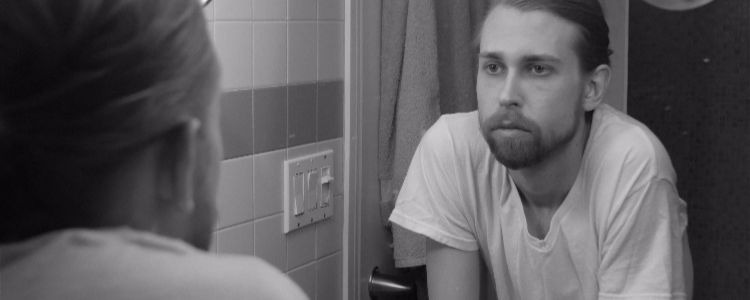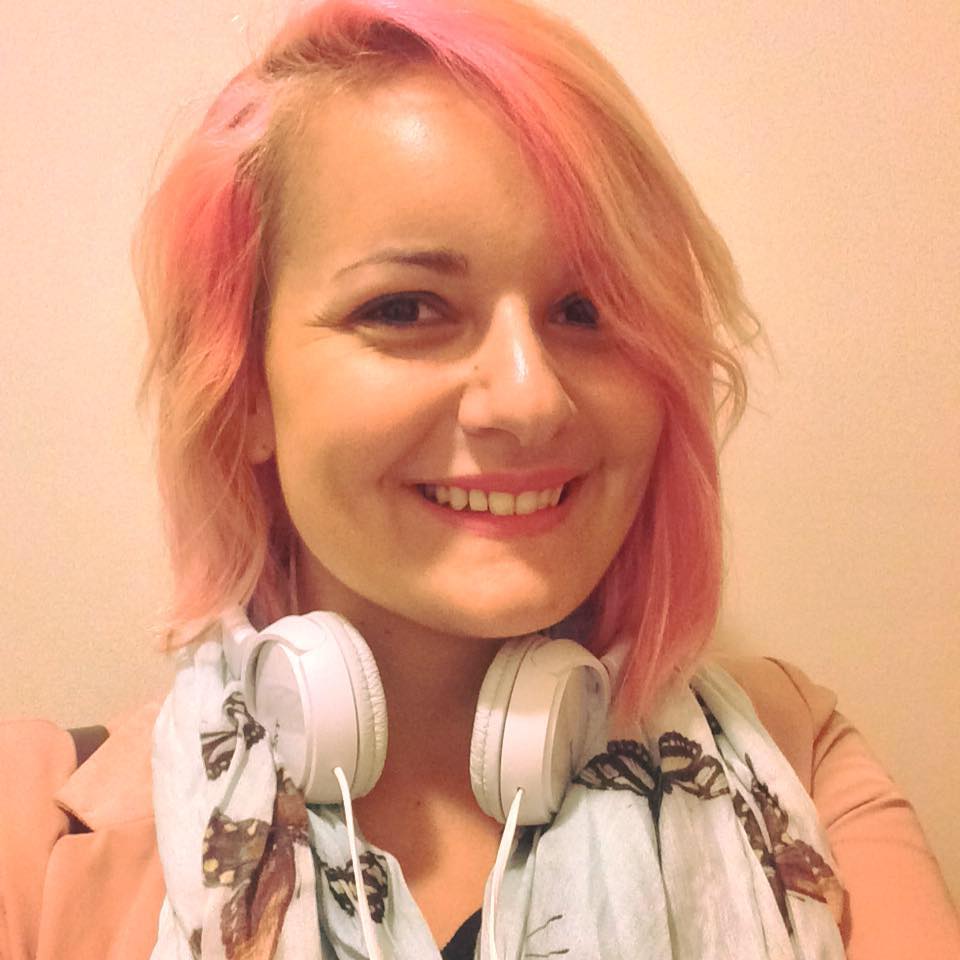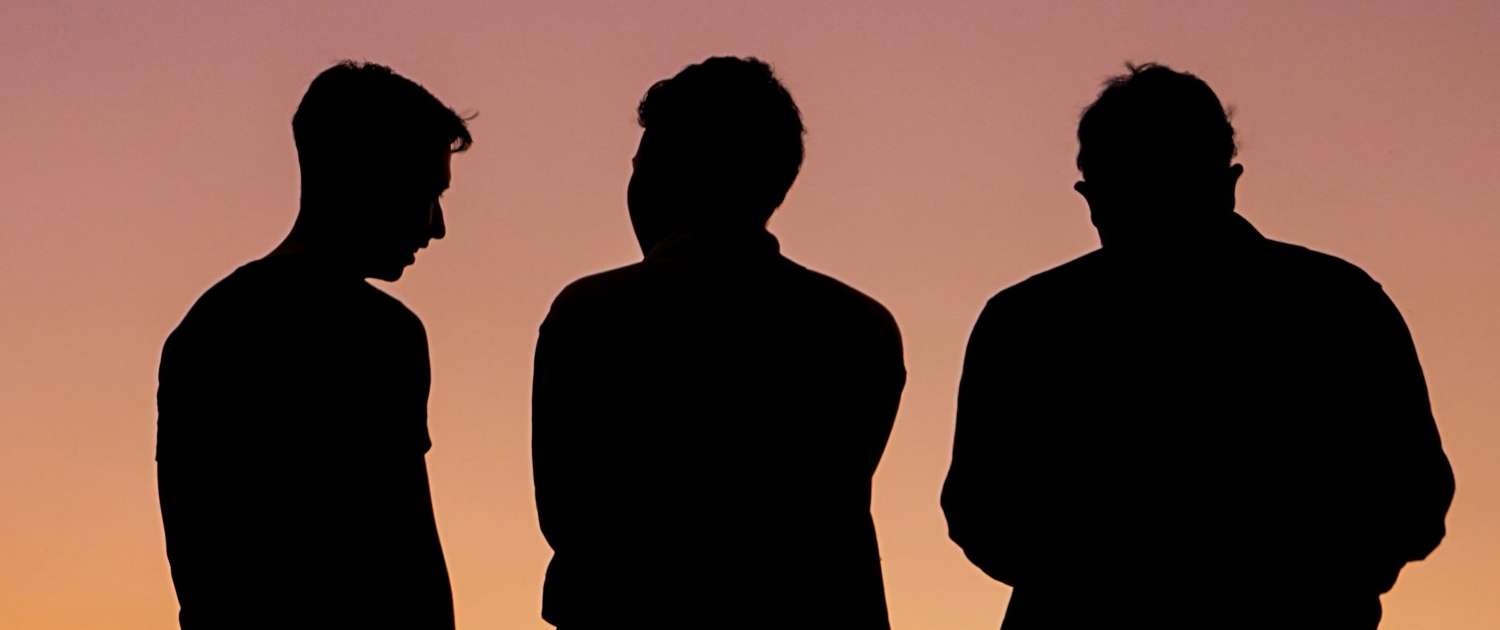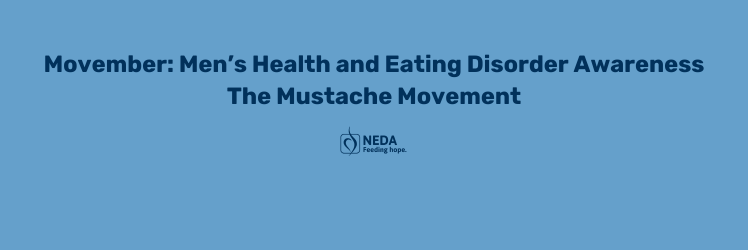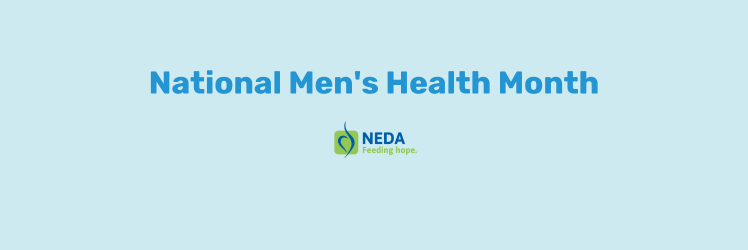Approximately 30 million people will struggle with an eating disorder at some point in their lives – 10 million of those people are men. Despite the statistics, men with eating disorders are often mocked, belittled, or ignored in a culture that views eating disorders as a disease that affects only wealthy white women.
The demands placed upon men in society to hide their emotions and struggle in silence are part of what inspired MAN-O, a fictional documentary-style series starring a character named Owen, who lives with anorexia nervosa. The series takes viewers on a journey through Owen’s life, including his experience participating in an all-women support group, which leaves him feeling awkward, resentful, and alone.
We had a chance to chat with Adam Christie, the Toronto-based actor who wrote, directed, and stars as Owen in MAN-O. An eating disorder survivor himself, Christie shared what inspired the style of the series along with his personal experiences in recovery communities that often aren’t inclusive of men.
Content Note: if you are struggling with an eating disorder, please know that the content of MAN-O can be triggering. If you are in recovery, check with your doctor before watching. For recovery resources and treatment options, please visit our resource center. If you or someone you know is struggling with an eating disorder, call ANAD’s Helpline at: (888) 375-7767 or the National Alliance of Eating Disorders Helpline at: (866) 662-1235.
If you are thinking about suicide, call or text the National Suicide Prevention Lifeline at 988. In crisis situations, text “HOME” to 741741 to be connected with a trained volunteer from the Crisis Text Line.
Diana Denza: Why did you decide to write and shoot the series documentary style?
Adam Christie: I decided to write and shoot the series documentary style because I wanted it to be presented as realistically as possible. I felt that more people would be able to attach themselves to the character if they felt like he was a real person rather than a creation made for a digital series. I wanted the audience to feel Owen’s pain and the most effective way to do that was through a documentary style series. In addition, I personally have never seen anything on this topic made in this style and that in itself thrilled me. To be completely honest, the idea for this project has been floating around in my mind for over a decade and I NEVER ONCE thought about making it in any style other than faux-documentary.
DD: What inspired you to release the series now?
AC: We decided to release the series now because of the social relevance it carries. Yes, the series is about male eating disorders but it is also heavily based on the modern day crisis of masculinity. A crisis that has been going on for decades but is just now, just the last couple months even, that we’re actually beginning to talk about it. It’s my opinion – and it’s an opinion only – that as soon we start raising our boys properly, raising our boys to be real men rather than males, things like sexual assault, school shootings, homo/transphobia, will start to decline. We raise our boys to swallow their emotions and bury them deep rather than teaching them how to feel.
We teach them to repress because feeling the feelings you have is a sign of weakness. How often do we say ‘man up’ or have some balls? What does that even mean? I’ve always felt that the statistics of males with eating disorders is way off. Most boys/men refuse to ask for help because asking for help is regarded as a sign of weakness. What guy would come forward and ask for help with a disease that’s socially regarded as a ‘female illness?’
DD: We see a lot of personal, autobiographical accounts about eating disorder recovery. Why did you decide to use a fictional character instead of your own personal experiences?
AC: This question is a bit more difficult to answer. The character of Owen is fictional, yes, but all of his thoughts/feelings about the illness come from my own experiences. Everything said in the narration are things that I either believe or used to believe. Some excerpts are even lifted straight from the pages of my journal that I kept in the thick of my illness. In that sense, nothing was fabricated. Since I wanted the series to tackle the struggle of masculinity as well, hence the title MAN-O, I had to take liberties for the story.
For example, I wanted the character to be surrounded by women – he was raised by two women where I was not. I’m not sure if you noticed but no other men are seen in the series. The only other males represented on screen are boys, not men. I thought that would help add to the character’s confusion about what it means to be a man. He’s 25 but still acts very childlike – Peter Pan-like almost – another liberty we took.
Owen is very much a character that was created but he was created by me and my experiences. In one treatment program I was in, it was suggested that we name our eating disorder in an attempt to separate it from ourselves. I chose the name Owen. It was an acronym – Only When Eating is eNough.
DD: When you were struggling with an eating disorder as a man, what thoughts and feelings were going through your mind?
AC: When I was struggling with an eating disorder, I felt completely isolated. And that’s a feeling that goes hand in hand with the disease regardless of gender. I was sick for close to five years before I even accepted the word anorexia. I learned about it in school probably three years into my illness.
I remember thinking “that sounds like what I have” but it was literally taught to my health class as ‘a disorder that only affects females who are trying to lose weight.’ Literally. Which we all know is not the case. I felt hopeless and completely alone. My eating disorder became my best friend, the only thing that would stand by my side. Which is completely deluded but your brain turns on you when you’re in that state.
When I came out of the ED closet so to speak and started seeking treatment, oddly I felt even more hopeless and alone. I felt like a mutant because everywhere I went I was the only male. I was treated like an anomaly and that’s is never helpful in this situation. I felt like I was being studied rather than helped.
DD: Do you feel like recovery communities are getting more inclusive of males with eating disorders?
AC: I hope so. I can’t answer this in an informed way. My last experience with recovery communities was about eight years ago. A lot changes in eight years so I sincerely hope so. But my experiences were never the most positive. I never felt like I could speak out with honesty because I would always get stared at like I had two heads. Like a mutant – there’s that word again. I would sit quietly and listen but never really relate. The more males who come forward and say that they need help, the more things will change to be more inclusive. I hope.
DD: What would have helped you feel more included in these spaces?
AC: Personally, I feel like a group comprised solely of males would have been very helpful. I’m not saying that mixed gender groups can’t be helpful, but having a group of just males would have helped me substantially. There are some things that only another guy would understand. Things that I would only be comfortable saying around other males. Judgement would have been limited because they would have been able to relate more.
My illness was never about weight or body image. I never looked in the mirror and saw my body as fat. I always saw my body for what it was. My illness was a coping mechanism that turned into an addiction, a way to eliminate pain. Because when you’re starving – all you can feel is hunger. I remember sitting in these groups and hearing some girls talk about the size of their thighs or breasts or butts and feeling myself get frustrated. I couldn’t relate to this and this was mostly what would be talked about.
When the word ‘fat’ would come up, I couldn’t help but roll my eyes. I would look around the room and think that the F word doesn’t apply to anyone in this room so why are we spending so much time talking about it? Now – as a recovered adult – I understand that the disease hits everyone in a different way. Everything discussed in those groups was completely valid and important. But then, as a teenager with a warped sense of reality, I couldn’t relate.
DD: What do you think are the biggest misconceptions facing men and eating disorders?
AC: I think the biggest misconception facing men with eating disorders is that men don’t get eating disorders. Men do in fact get eating disorders, much more frequently than we’ll ever know. Men are raised to hold in their emotions to the point that we start to choke on them. Drown in them so to speak. We are less likely to come forward. We are just as susceptible as females to poor body image, the desire to be different than what we are.
In a sense, I was lucky that my illness was more of an emotional coping mechanism rather than something that was rooted in poor body image. Because if I had poor body image as well, I know that I would have died. We live in a media based culture that’s worse now than ever. We are all barraged with the same Abercrombie and Fitch billboards showing the rock hard bodies. It hits both men and women alike.
Yes, women have it harder because one body type is recognized as attractive by the media. But we all suffer from the same ‘Instagram-disease’ as I call it – you are not enough, you don’t have enough, be better, want more. We’re programmed to hate ourselves – it doesn’t discriminate against gender. Just like eating disorders don’t discriminate against gender.
DD: What would you tell fellow men who are struggling their mental health?
AC: I want to tell fellow men struggling with their mental health that there is no shame in getting help. NO SHAME. In fact, the shame would only exist in not getting help. The brain and the mind are part of the body. Period. Would you ignore treating diabetes? Or a broken arm? Or a cancerous growth on your skin? No. It’s up to us to take care of ourselves. It’s not a sign of weakness. It’s a sign of strength and bravery. As far as we know, we only get one shot at this life so why not make it the best one possible.
And that message goes out to men and women alike. We need to take our mental health into our own hands whether you suffer from an eating disorder or any other sort of mental illness or unwellness. I truly believe that once boys and men are released from these chains that we have them locked in, the world would be a much better place for all living things. Sexism, sexual assault, violence, bigotry, murder, etc. would slowly start to become a thing of the past. Having emotions does not make you weak or less of a man. Having emotions actually makes you more of a man because all humans have emotions. And that’s a beautiful thing.

